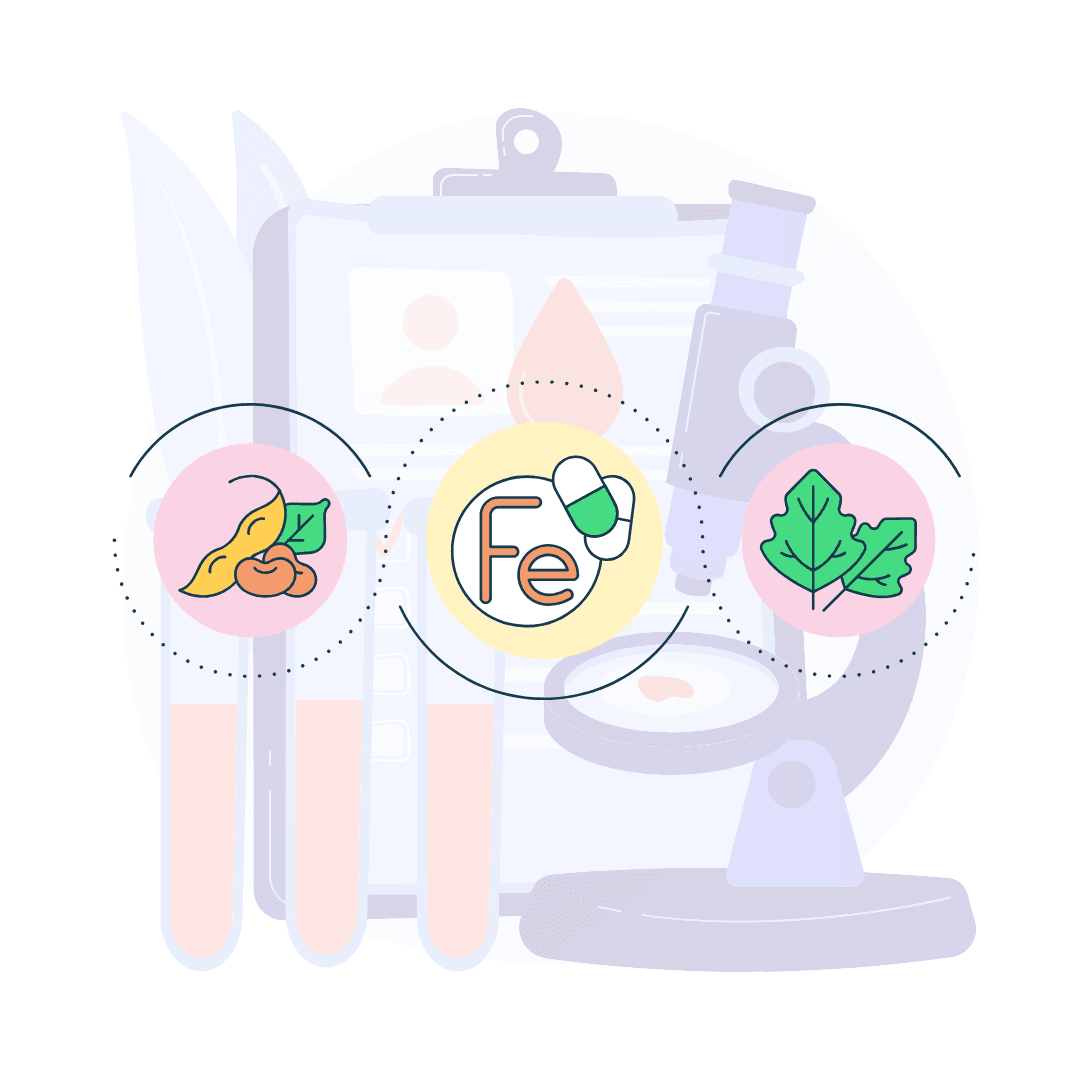
We need it.
Our red blood cells contain a protein called haemoglobin. This haemoglobin allows us to carry oxygen, which is crucial to our survival. This same haemoglobin is what needs iron to actually carry the oxygen we need for our survival.
Iron deficiency, and even low iron levels, can manifest as:
fatigue
sleepiness
restless legs
shortness of breath, even with mild exertion
irritability
mood swings
diffuse hair loss
poor hair regrowth
brittle or thin nails
easily fatigued muscles
palpitations
low blood pressure
cold hands and/or feet
difficulty concentrating
skin pallor or lacklustre skin
poorer memory
It can show up in other ways as well.
We usually assess your iron levels using the marker called ferritin.
Ferritin is a protein that tells us about your iron stores. If you have enough stores, you have enough iron that you were able to store it 😉 The one problem with ferritin in cases of inflammation, inflammatory conditions like endometriosis or PCOS or heart disease, or acute infection, this ferritin can be reflective of inflammation instead of your actual iron stores. If you have signs/symptoms of iron deficiency but your ferritin is normal or elevated, running an inflammatory marker and other parameters is prudent so that we're not missing an iron deficiency.
We also assess your red blood indices, like the concentration of haemoglobin, the number of red blood cells, etc.
We can actually also test your iron in your bloodstream, but this number is a bit more volatile. It's influenced on a regular basis depending on dietary intake or supplementation. Along with iron, we usually have other markers like:
transferrin, a protein that carries iron around in your blood
transferrin saturation, the percentage of that carrier protein that is currently carrying iron
TIBC, total iron binding capacity, an indirect measure of how much iron you have around

If you're deficient in iron, then the likely answer is: yes. Dietary iron will (a) not bring up your levels fast, and (b) have enough iron to bring your levels up, especially if you're menstruating regularly.
Most people require ~100mg of iron (unless it's liposomal or heme) for at least 8-12 weeks to see a change in ferritin levels. As in, if you start an iron supplement, then we should know in 8-12 weeks if your stores are improving. If they're not, then the dose and/or form are not effective for you. Switch things up under the guidance of your medical team and retest once again in 8-12 weeks. You should also begin to see an improvement of your symptoms in this same time frame.
Now, if you're not tolerating a particular iron not well–this will usually look like digestive upset–then there are certain forms that are tolerated better. This includes polysaccharide, carbonyl, glycinate, and liposomal forms. Vitamin C and the amino acid lysine found in any protein can help with elemental iron absorption.
Taking your supplement regularly is more important than timing that supplement. Some considerations are:
away from thyroid meds
away from minerals like zinc and calcium
away from coffee/tea
The bottom line still is: in is better than without!
You can have low iron or be iron deficient regardless of your dietary patterns. Yup, you can even be consuming red meat or lots of greens and still need more iron. This is especially true of menstruators who lose iron regularly.
Many foods are fortified with iron (and other nutrients). Common iron-rich foods include:
pumpkin seeds
lentils and beans
soy products and tofu
liver
fortified cereals and oatmeal
oysters and mussels
Herbal teas that are iron-rich include nettle leaf, raspberry leaf, mountain tea, and purslane tea.